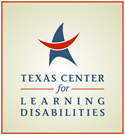Description
Within multitiered instructional delivery models, progress monitoring is a key mechanism for determining whether a child demonstrates an adequate response to instruction. One measure commonly used to monitor the reading progress of students is oral reading fluency (ORF). This study examined the extent to which ORF slope predicts reading comprehension outcomes for fifth-grade struggling readers (n = 102) participating in an intensive reading intervention. Quantile regression models showed that ORF slope significantly predicted performance on a sentence-level fluency and comprehension assessment, regardless of the students’ reading skills, controlling for initial ORF performance. However, ORF slope was differentially predictive of a passage-level comprehension assessment based on students’ reading skills when controlling for initial ORF status. Results showed that ORF explained unique variance for struggling readers whose posttest performance was at the upper quantiles at the end of the reading intervention, but slope was not a significant predictor of passage-level comprehension for students whose reading problems were the most difficult to remediate.
Citation
Cho, E., Capin, P., Roberts, G., & Vaughn, S. (2018). Examining predictive validity of oral reading fluency slope in upper elementary grades using quantile regression. Journal of Learning Disabilities, 51(6), 565–577.
